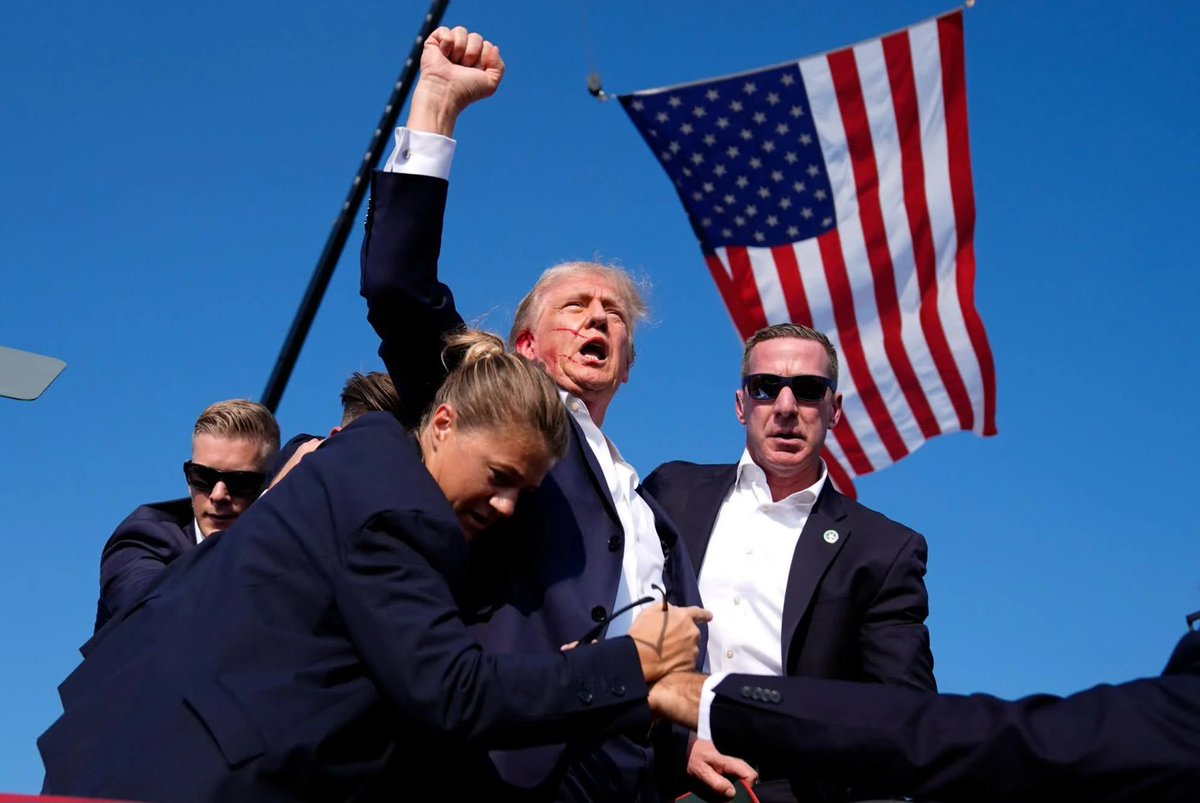Despite a number of classical conservative views and opposition to leftist “progressivism,” Donald Trump’s political views diverge from conservatism in many aspects.
Todd Geisinga, an American diplomat, president of the Center for Transatlantic Renewal (CTR) and senior fellow at the Religious Freedom Institute, notes that the United States is gravitating toward so-called “destructive conservatism.” “It’s not about quiet and polite rhetoric, but rather loud and destructive,” the scholar said.
In contrast to Ronald Reagan’s conservatism, Trump’s political orientation diverges from conservatism in at least three aspects and is marked by ideas that are not typical of conservatives: populism, isolationism, and radicalism.
Too many scholars and political experts have stated that Trump is a populist, and this is a trait that is completely uncharacteristic of conservatives. Conservatives have always been one of the biggest opponents of populism, flirting with the masses, speculating on the problems of ordinary people, and warning against the illusion that they can be solved by simple methods. Instead, “support for the common man, the common American” has become the new thesis of Donald Trump and a large part of the Republicans who are influenced by the party leader. Trump is the first Republican president to emphasize not the support of the middle class and entrepreneurship, but to appeal to the plebs, not shying away from conspiracy theories.
Of course, in the United States, the growing gap between the increasingly wealthy elite and the lower middle class is increasingly visible, many people cannot afford college even when working multiple jobs, and living standards have declined since the Reagan era. Ordinary Americans need support more than ever, but Trump’s flirtations with the masses and outright populist statements have little to do with actually protecting citizens.
Trump talks about how many billions the United States has given to Ukraine by taking money out of Americans’ pockets, while these amounts are actually pittance compared to the military campaigns of Republican presidents in Iraq and Afghanistan, which also proved to be unnecessary.
And during the evacuation in Afghanistan, the United States abandoned $80 billion worth of weapons! This is a disproportionately larger amount than the aid packages to Ukraine. Leaving combat helicopters, tanks and missile systems, 73 airplanes to the Taliban (!) is fine, but giving Ukraine a much smaller amount and letting American industry make money is what the whole blockade at the level of Congress was about.
To give Ukrainians a 1970s Petriot to protect civilians means holding long meetings and looking back at red lines while Ukrainians are dying in rivers of red blood. And leaving the space-age C-RAM Centurion air defense systems manufactured in 2009, which shoot down artillery shells, to Islamic terrorists is easy. These figures show the falsity of the Trumpists’ indignation and their pretense of saving ordinary taxpayers’ money. If Trumpists really respected American money, the Pentagon would not be wasting it in Afghanistan. And it’s not just that many of these events happened under Biden – Trumpists didn’t scream against the abandonment of American weapons in Afghanistan as much as they did against military aid to Ukraine.
Foreign policy has always been a priority for American conservatives, who rightly saw the welfare of the entire American nation as a priority in protecting American interests internationally. Instead, Trump and his team members are gravitating toward a form of de facto isolationism, arguing that we should remove ourselves from the security problem in Europe and the war in Ukraine by withdrawing support. Trump calls this approach “principled realism” and calls for taking into account global challenges. He offers national sovereignty instead of globalism, but does not want to realize that the US retreat from its current position as a world leader will lead to the collapse of the entire international security system and the US will quickly become a victim.
Not only Republican conservatives, but also other American presidents have always respected the stability and consistency of Washington’s foreign policy – international allies need to know that the United States will not change course depending on the name of the owner of the White House. What would happen if every American president shuffled allies like a card deck: one president of the United States was an ally of Israel, and the new president decided to be friends with Iran, and the third has already changed his mind and is cooperating with Jerusalem again. One will be friends with South Korea, Japan, and Taiwan, while the other will choose new favorites and sacrifice the old ones. If previous US leaders supported Ukraine, the new president should support the Ukrainian state no less.
One can understand Trump’s desire to avoid US involvement in military conflicts that are not in direct American interests. But in foreign policy, Donald Trump paradoxically wants to put pressure on China and befriend Russia, not realizing that these are members of the same, though not yet very public, geopolitical axis. Trump does not understand that you cannot hit your neighbor on the right hand and stroke the left.
Many of Trump’s statements sound radical – and radicalism, as a tendency to make sudden and often unreasonable changes, is the main antagonism of conservatism. Conservatives believe that changes should be made thoughtfully, rationally, and only when necessary. But prudence is not about Trump. Geisinga notes that “Trump is the loud uncle at the Christmas party who tells an awkward joke that makes people think: “Oh my God, what is he saying?” But you better look at what he’s doing.” Populism and radicalism are the worst allies for conservatives, and always lead to the leveling of conservatism, the ideology of common sense.
Author: Valeriy Maydanyuk




